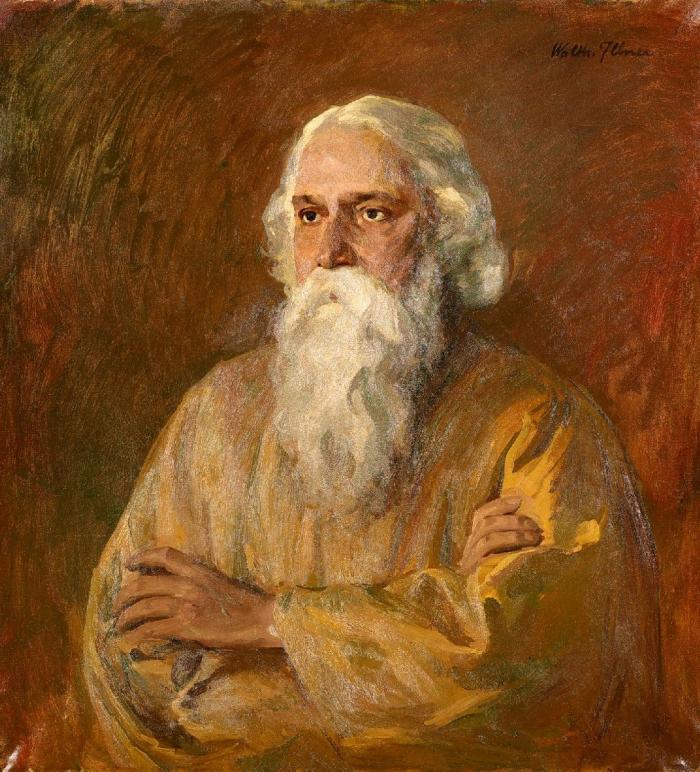Top 3 Poetries Of Rabindranath Tagore

Rabindranath Tagore, revered as one of the greatest poets in world literature, left an indelible mark on Bengali and global poetry. The first Asian Nobel laureate in literature, Tagore’s poetic voice carries deep emotions, philosophies, and spiritual insights. His poetry draws readers into a world of love, nature, humanity, and the divine, capturing the essence of India’s spiritual and cultural beauty. Below are three of Tagore's most influential poems, each resonating with universal themes that continue to inspire generations.

1. Where the Mind is Without Fear
Summary and Theme:
“Where the Mind is Without Fear” is a profound piece that envisions a world where the human spirit is free from oppression and ignorance. Written during India’s struggle for independence, Tagore captures his dream for a liberated and enlightened India. The poem reflects a yearning for intellectual and spiritual freedom, where people can pursue truth without constraint.
Key Lines and Analysis:
Where the mind is without fear and the head is held high;
Where knowledge is free;
Where the world has not been broken up into fragments
By narrow domestic walls;
In these opening lines, Tagore describes an ideal society where individuals live with dignity, courage, and unbounded knowledge. The metaphor of “narrow domestic walls” symbolizes societal and communal divisions, which he yearns to see eradicated. This poem is a visionary call for harmony and progress, capturing his belief that true freedom lies in the liberation of the mind and spirit.
Impact:
The poem has inspired countless freedom fighters, thinkers, and artists. Its timeless relevance makes it a powerful reminder for each generation to pursue unity, freedom, and enlightenment. The piece is as much a prayer as it is a rallying call, urging humanity to rise above hatred and division.
2. Gitanjali 35 (No More My Lord)
Summary and Theme:
Poem 35 from Gitanjali, Tagore’s Nobel-winning collection, expresses humility, devotion, and the poet's profound connection to the divine. The speaker renounces ego, choosing to surrender himself entirely to God’s will. It reflects the notion of surrendering personal pride to align with something larger than oneself.
Key Lines and Analysis:
No more, my lord, no more shall I have any desire that would break me wholly away from thee;
Even as the stone breaks up when it strikes the threshold.
In these lines, Tagore articulates the theme of humility, likening the destructive nature of desire to a stone shattering upon impact. The poet recognizes that individual pride and ambition often create barriers to true fulfillment, and by relinquishing them, he finds a path to divine peace.
Impact:
This poem has resonated with readers who find solace in surrendering to life’s mysteries. It continues to be appreciated for its introspective depth, helping individuals reflect on ego, identity, and devotion, making it a favorite in spiritual and literary circles worldwide.
3. The Journey (Birpurush)
Summary and Theme:
“Birpurush,” or “The Hero,” portrays the imagination of a young boy who dreams of rescuing his mother from bandits. Through the eyes of the child, Tagore brings forth the themes of courage, innocence, and the boundless imagination of youth. The child fantasizes about his bravery and heroism, projecting himself as a savior figure.
Key Lines and Analysis:
Mother, I shall rescue you.
I shall cross the forest,
And on the way,
Fight away every danger that bars our way.
The boy’s promise reflects his fearless, unwavering spirit and his desire to protect his mother. The poem’s tone combines both lightheartedness and a sense of heroic aspiration, showcasing Tagore’s ability to capture childhood innocence and idealism in a way that resonates deeply with readers.
Impact:
This poem endears itself to readers by blending adventure with tender affection. It stands as an example of Tagore’s skill in capturing everyday emotions with universal appeal. “The Journey” continues to be cherished for its delightful, relatable storyline and its portrayal of a child’s instinctive bravery.



